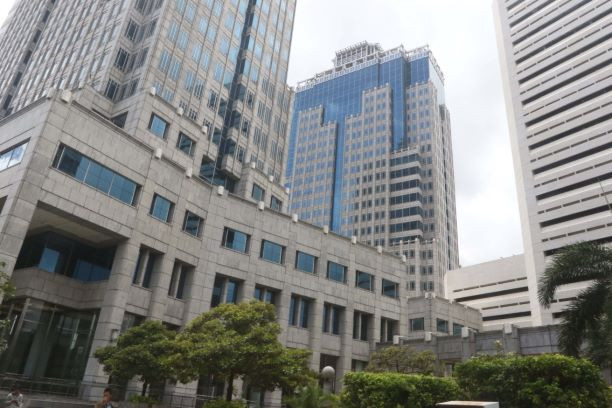Popular Reads
Top Results
Can't find what you're looking for?
View all search resultsPopular Reads
Top Results
Can't find what you're looking for?
View all search resultsBank Indonesia rupiah securities: Empowering the financial market
Expanding the ownership of SRBI to institutions other than banks will encourage banks to participate in auctions, making SRBI prices more competitive.
Change text size
Gift Premium Articles
to Anyone
B
ank Indonesia (BI), the central bank, which is tasked with ensuring the stability of the rupiah and creating an environment conducive to economic growth, recently issued Sekuritas Rupiah Bank Indonesia (SRBI), or Bank Indonesia rupiah securities, which are short-term debts backed by underlying assets. SRBI act as the primary vehicle through which BI manages government bonds and securities, thereby contributing to the development of the domestic capital market.
SRBI facilitate the trading, issuance and redemption of government bonds and ensures the smooth functioning of the primary market. Additionally, SRBI operate in the secondary market, where market players buy and sell government bonds to institutional investors such as banks, insurance companies and non-bank financial institutions. SRBI also contribute to the development of the Indonesian financial market by fostering investor confidence through various initiatives and services. They provide market analyses and research reports that assist investors in making informed investment decisions. Moreover, as a regulatory authority, SRBI actively engage in promoting transparency, fairness and efficiency in the capital market. They ensure compliance with market regulations, monitor market activities and conduct audits to maintain market integrity.
The contributions of SRBI to the Indonesian financial market are immense and multifaceted, ranging from enhancing liquidity to fostering economic growth. By participating in primary auctions, SRBI ensure that the government has access to adequate funding for development projects, infrastructure and social welfare initiatives. This enables the government to achieve its monetary policy goals and stimulate economic growth. Moreover, the SRBI role in the secondary market provides additional liquidity to government bonds, making them attractive investment options for a diverse range of investors. Another significant contribution is the securities’ ability to manage interest rate risks. As the central bank, BI utilizes SRBI as a mechanism to stabilize interest rates by controlling the money supply and influencing market liquidity. SRBI's involvement in the government bond market allows for a more efficient transmission of monetary policy, ensuring that changes in policy rates translate into meaningful economic impacts. This helps maintain price stability, control inflation and foster a favorable investment climate.
Furthermore, SRBI have three main objectives: strengthening efforts to deepen the money market, supporting efforts to attract inflows of foreign capital in the form of portfolio investments and optimizing the government securities (SBN) assets held by BI. Currently, the initial auction of SRBI is conducted in advance in the primary market for commercial banks that have participated in conventional open market operations. However, SRBI can eventually be traded in the secondary market, so they can be owned by residents and nonresidents. Some of the SRBI currently issued use government securities as the underlying asset with a maturity period of one week to twelve months, some are issued without accompanying documents and others are issued and traded with a discount system, are transferable and can be owned by residents or non-residents in the secondary market.
Meanwhile, banks can also use SRBI for the fulfilment of macroprudential liquidity buffers. Under certain conditions, this instrument can be used for repo transactions with BI in the open market operations mechanism. So, this can overcome the problem of procyclical liquidity and become a liquidity-based macroprudential instrument. Procyclicality is the interaction between the financial system and the real sector, where the financial system has a role in financing the growth of the sector.
Furthermore, SRBI is not only attractive to the banking industry but also to corporations and individuals looking for investment placements. Banks have full flexibility to sell SRBI to non-bank institutions. These instruments can be sold to asset management companies, foreign investors and retail investors. The interest rate offered is predicted to be higher than the reverse repo interest rate for government bonds or treasury bills, in the range of 6.00-6.50 percent. This high interest rate is expected to be an incentive for banks to buy SRBI in auctions. Some banks may resell them with relatively higher yields compared to other assets, thus attracting the interest of foreign and domestic investors. In the future, expanding the ownership of SRBI to institutions other than banks will encourage banks to participate in auctions, making SRBI prices more competitive. With the ability of banks to trade these assets, bank assets become more diversified, thereby optimizing capital gains from SRBI trading activities.
In conclusion, SRBI are part of an instrumental institution that can help fortify the Indonesian financial market. Through their role as a primary dealer, SRBI ensure smooth operations in the primary and secondary government bond markets, helping the government meet its funding requirements and fostering economic growth. SRBI's management of interest rate risks and efforts to enhance market transparency further contribute to the stability and attractiveness of the Indonesian financial market.
As SRBI continue to play a pivotal role in the development and growth of Indonesia's financial landscape, their contributions are imperative in sustaining a robust and prosperous economy. Besides, SRBI are beneficial to the banking industry through the diversification of assets to optimize capital gains, particularly from the buying and selling activities of the securities. Meanwhile, for residents and non-residents, SRBI will provide a new investment option that is relatively safe and has competitive returns compared to other investments.
***
The writer is a senior economist at the Macroprudential Policy Department of Bank Indonesia. The views expressed are his own.











